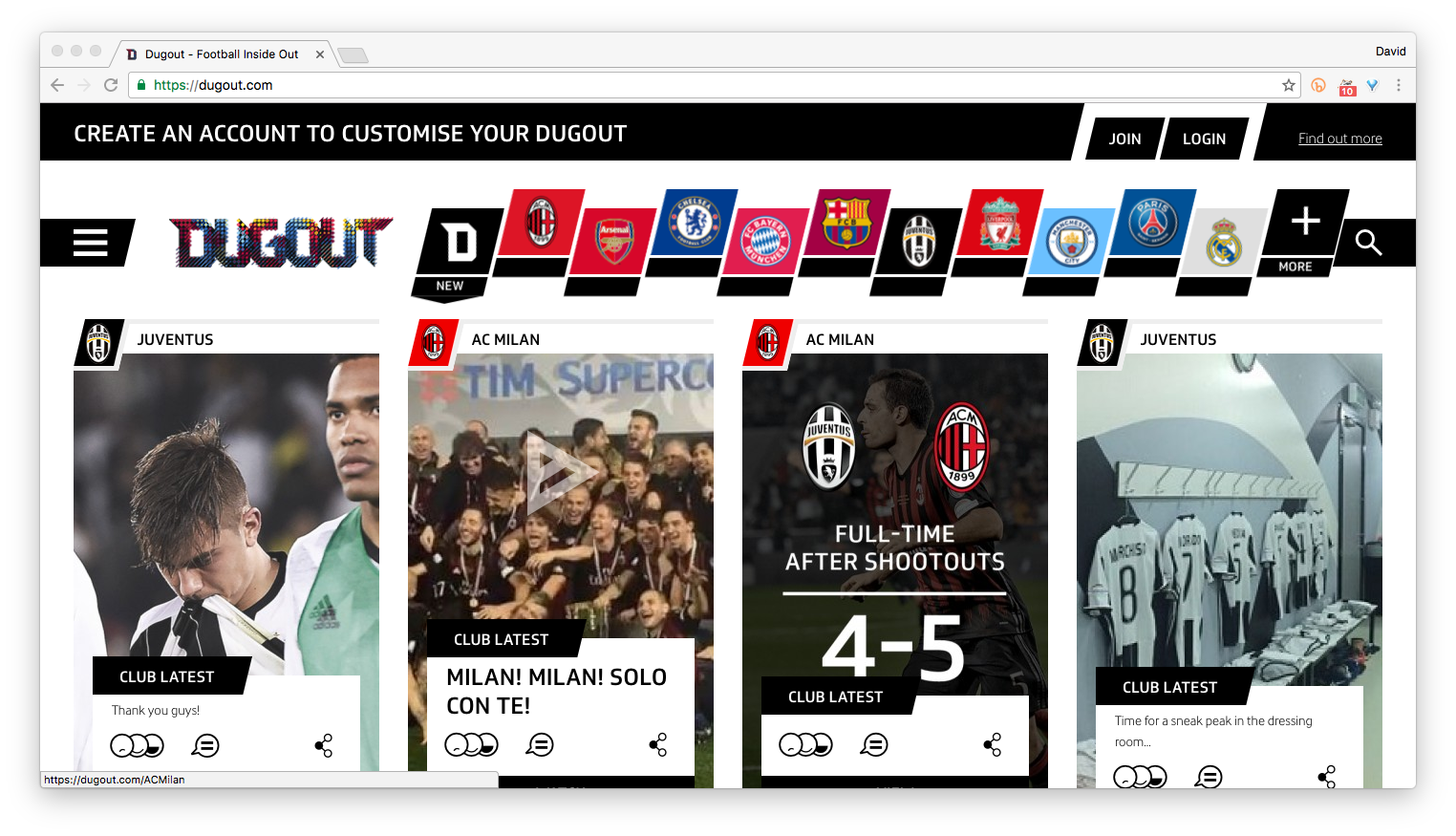Money, of couse

Soccer teams are primarily engaged in the content business. Their main product is the team on the pitch, but their income is a function of content sold against that product: tickets to see matches; TV rights to broadcast matches; memorabilia related to the team; and advertisements sold against the content they produce. In these very abstracted terms, a soccer team sounds a whole lot like a media company, because that’s what it is.
There are, of course, plenty of media companies that exist around soccer teams. These websites, social media accounts, podcasts, and magazines [yes, that would be us] also make content related to the teams in question then sell that content or advertisement against it. The crucial difference between Bleacher Report’s Tottenham Team Stream and Tottenham Hotspur FC, for instance, is that only one of those two content advisers actually has to pay Harry Kane’s weekly wages. It costs very little to publish endless conjecture and analysis of soccer teams; it is extraordinarily expensive to actually maintain the soccer teams at the centre of these content ecosystems. If you run a team, then, it can be very tempting to look at the media companies as parasitic freeloaders: If teams are the economic actors that produce valuable content, why shouldn’t they be the ones to cash in on the content ecosystem?
That is the easiest way to understand Dugout, a new digital publisher that appears to have ties to top European clubs. You will not learn this on dugout.com’s website, but The Guardian reports, “senior executives of seven clubs — PSG, Bayern Munich, Liverpool, Manchester City, Arsenal, Juventus and Chelsea — are listed as directors, according to filings at Companies House.” In fact, Dugout’s about page tells you painfully little about the whole enterprise. Here, for instance, is the entirety of the “about Dugout” spiel:
Dugout connects football fans to the world’s greatest clubs and players — giving you exclusive behind-the-scenes content and access, all in one place. In a world first, we’re giving fans one platform that delivers unrivalled access to their favourite clubs and players — away from the noise of multiple social media and news sites. We’ve created Dugout to be the ultimate destination for fans.
Or, if you prefer a description in terms a reasonable human might use, here’s The Guardian’s Mark Sweney:
Almost two dozen of the world’s biggest football clubs including Arsenal, Chelsea, Bayern Munich, Barcelona and Juventus have joined forces to launch a new social media network that aims to replicate the success of Facebook for football fans.
Marketing pablum notwithstanding, it’s a site full of exclusive — and often soporific — behind-the-scenes content and basic news about big clubs. This is the kind of things that in-house media arms of teams can easily produce: every scrap of content can now be published and monetized. All of which is to say that Dugout is a dull website that is only interesting in the way it illuminates the core tensions of the modern soccer business.
The past decade has amply proven that cheap aggregators will happily turn a team’s in-house productions into “news.” If Zlatan Ibrahimovic gives MUTV a quote, it will appear on every club-related blog within the day. Likewise, if Zlatan Ibrahimovic gives The Telegraph a quote, it will appear on every club-related blog within the day. If you are Manchester United, then, you might as well own, watermark, and control the video that is being embedded across the internet and maybe sneak in some advertisements somewhere along the way. As clubs begin to behave like more aggressive content companies, the impulse to take more functions of the media system in-house will become more apparent.
On one level, this means nothing for fans. The basic reality of soccer fandom is that most supporters couldn’t care less if behind-the-scenes footage is released on Dugout or social media or a club’s page. The content is out there and will eventually find its way to you, the fan. But the aggregate effect of all these minor renegotiations of power dynamics are worth considering. The more clubs see themselves as — and behave like — content providers, the more they risk functionally taking ownership of fandom. Exclusive content is one thing, but restrictions on the sharing of gifs or other expressions of fandom can genuinely affect how millions of fans expect the game. [Disclosure: Howler has some priors in this regard having once been briefly suspended by Twitter over gif usage before atoning for its ways.]
This is not a particularly new conflict. Journalistic access has always been contingent on the extent to which teams think it advances their goals. This is why Chelsea, despite having to pay for Eden Hazard, is still willing to help a certain amount of Hazardous content to be made by other outlets. A working balance between the needs of various content enterprises is not impossible, but there is a central asymmetry wherein clubs can redefine the terms in a way that serves their narrow financial interests more than the greater cause of sports fandom. Dugout is a boring website that suggests teams might be going too far in their attempt to control soccer-related media and social media. Frankly, our best defense against the website is that it’s unrelentingly boring.

